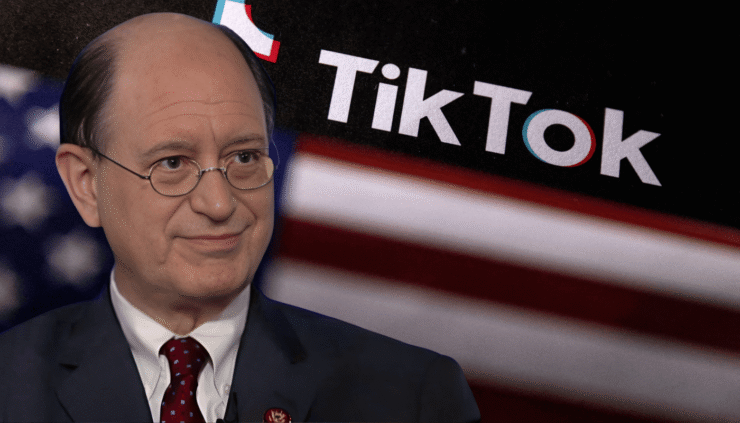TikTok has forcefully denied accusations that its parent company, ByteDance, is behind a $300 million purchase of former President Donald Trump’s official memecoin, distancing itself from politically charged claims that have stirred controversy in Washington.
The allegations came from Representative Brad Sherman, a longtime critic of both TikTok and the cryptocurrency industry, who implied that the Chinese-owned platform had used the investment as a covert political bribe to sway Trump’s stance on TikTok’s future in the U.S.
In a statement from its official policy account, TikTok called the claim “patently false and irresponsible,” accusing Sherman of twisting the facts and misrepresenting the contents of a bipartisan letter he had signed just weeks earlier.
Trump’s TikTok Delay Fuels Crypto Bribe Allegations
Sherman’s accusations arrived just days after Trump signed yet another executive order delaying TikTok’s forced sale or ban in the U.S. by 90 days—his third such extension. Sherman contends the move violates existing legal limits and questioned the former president’s motives, suggesting the delay was linked to the $300 million crypto deal.
Central to Sherman’s claim is a May announcement from GD Culture Group, a Nasdaq-listed firm that creates TikTok content using AI. The company disclosed plans to invest in both Bitcoin and Trump’s memecoin, raising eyebrows over potential backdoor dealings.
However, GD Culture has no known ownership ties to ByteDance. Its link to TikTok is limited to content production, not corporate governance. Despite this, Sherman alleged that the memecoin—reportedly minted at no cost to Trump—could serve as a political payoff mechanism.
Crypto Community Rebukes Sherman’s Accusations
While some social media users questioned the veracity of TikTok’s denial, most criticism was aimed squarely at Congressman Sherman, with many accusing him of pushing unfounded narratives to score political points.
Crypto advocates took particular issue with Sherman’s claim that Trump’s memecoin could be minted “at no cost” and used for influence-peddling. “There’s no such thing as free crypto,” one user wrote, referencing the legal, technical, and financial costs tied to launching a token.
Sherman’s long-standing hostility toward crypto—he once called for an outright ban in 2019—also reemerged as a flashpoint. Critics argued that his perspective is increasingly disconnected from a digital asset market that is now seeing bipartisan interest and institutional growth.
Trump’s Crypto Embrace Widens Political Divide
While Sherman remains one of the fiercest critics of crypto in Washington, the Trump campaign has recently leaned into digital assets—particularly stablecoins—as a means to bolster dollar supremacy. This evolving stance is turning crypto policy into a campaign issue and transforming Sherman into a symbolic target for pro-crypto voters.
As regulatory pressure intensifies and political narratives collide, the episode underscores how intertwined crypto has become with U.S. politics—and how digital assets are increasingly seen as both financial tools and ideological battlegrounds.
Quick Facts
- TikTok denied involvement in a $300M Trump memecoin deal.
- Rep. Brad Sherman alleged it was a political payoff.
- GD Culture, not ByteDance, announced the crypto investment.
- Sherman faces backlash for his anti-crypto stance and claims.





